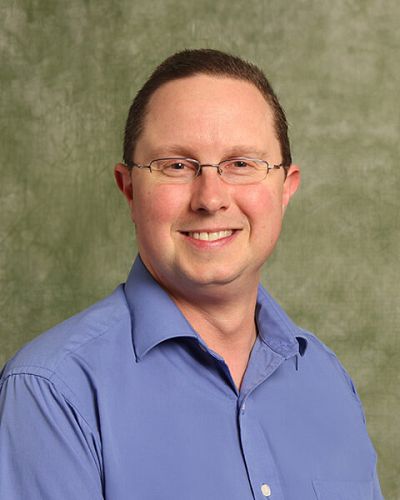Event box
The Science in Scientific Collecting: What Good are Old Rocks, Old Bones, and Pressed Plants? A Discussion w/ Dr. Anne Clark
Join us on Friday, November 12th from 3:30-5pm in the Zurack Center (Innovation Lab located in Library Tower) for an interactive talk highlighting the science in scientific collecting given by Dr. Anne B. Clark from the Biological Sciences department. Light refreshments will be available. For more info on the talk, including speaker bios and registration information, see below. We hope to see you there!
AND DON'T FORGET to visit Special Collections on the second floor of Bartle Library before the talk from 2:30-3:15pm for the launch of a new exhibit, "(Re)presenting the Birds of America." This exhibit will feature the newly-acquired 1859 third octavo edition of John James Audubon's Birds of America, as well as other ornithological illustrations from Special Collections.
CLICK HERE TO REGISTER FOR THIS EVENT
Precis of Talk:
After a now-famous heist of bird specimens from a London museum in 2009, the thief reportedly defended himself by saying that biologists had had several hundred years to look at these specimens and must have gotten all the information they were going to get. So why could they possibly care if someone took them to use the feathers? In this talk, Dr. Anne Clark will attempt to shed some light on his question “why should we care”, with some real examples of the important insights we can get from our collections. Dr. Clark hopes to illustrate why we need the history contained in those drawers of old dusty things and, in fact, that they grow more, not less important as our advances allow us to get richer and more exciting information from them, information with big implications for predicting our future.
Dr. Clark will be introduced by Special Collections Librarian, Jeremy Dibbell.
Speaker Bios:

Anne B. Clark, Ph.D
Associate Professor, Biological Sciences
I got my first taste of museum collections as a freshman undergraduate in Biology at the University of Chicago. Several early mornings each week, I took the train to the Field Museum of Natural History to sit among cabinets full of mammal bones, carefully pouring latex into the braincases of coyote skulls. Once cured, out popped a little latex balloon in the exact shape of the brain, complete with all important “hills and valleys” (gyri and sulci) that allowed my mentor, Len Radinsky, to measure an area associated with social pack behavior. Some of those bones were many decades old, but this new technique allowed us to “see” the brain and make new evolutionary inferences based on many individuals from different areas. This work-study job fed me and also made collections a natural part of biological investigations in my mind, even though I have gone on the study the living animals rather than their preserved remains.
I am now an evolutionary biologist particularly interested in the interaction of ecology and behavior, especially social behaviors. In the 8 years after my Field Museum adventures, I got a BA and a PhD from U Chicago, even dropping out of my 3rd ugrad year to spend 15 mos as a zookeeper, applying everything I knew to the renovation, upkeep and display of a different kind of collection…a living one. In this I also got involved in the informal, public education side of collections, inventing an “education department” for the zoo.
After a 2 year post doc (1975-77) at the University of Witwatersrand, South Africa, teaching and doing field work on the small prosimian primates or “bushbabies” I had studied for my dissertation, there was a long hiatus of non-faculty positions following my evolutionary biologist husband (UC Davis, MSU-Kellogg Biological Station). During this time, I began studying parent-offspring relations and behavior in birds. Then in 1988, I joined the Department of Biological Sciences here at Binghamton University as a faculty member. My research has spanned Budgerigar behavior, including their yawning, Red-winged Blackbird parental care and currently, many aspects of the behavior of crows.

Jeremy Dibbell
Special Collections Librarian, University Libraries
Jeremy Dibbell has been at Binghamton University as a Special Collections Librarian since December 2019. He was previously the Director of Communications and Outreach at Rare Book School, Librarian for Social Media and Rare Books at LibraryThing, and an Assistant Reference Librarian at the Massachusetts Historical Society. He received his B.A. from Union College and M.A./M.L.S. degrees in History and Library Science from Simmons College. Along with ongoing work on early American private libraries, Jeremy is
This event is co-hosted by the University Libraries' Sustainabiliy Hub & Special Collections Department
Related LibGuide: The Sustainability Hub by Neyda Gilman
- Date:
- Friday, November 12, 2021
- Time:
- 3:30pm - 5:00pm
- Time Zone:
- Eastern Time - US & Canada (change)
- Location:
- Zurack Family High-Technology Collaboration Center
Link to landing page
Accessibility Notice
Binghamton University Libraries are proud to offer assistance to guests with disabilities. Guests are encouraged to provide as much advance notice as possible prior to the start of an event to help ensure that their request for special assistance may be met. For further details or to arrange for special assistance, contact the event organizer.

